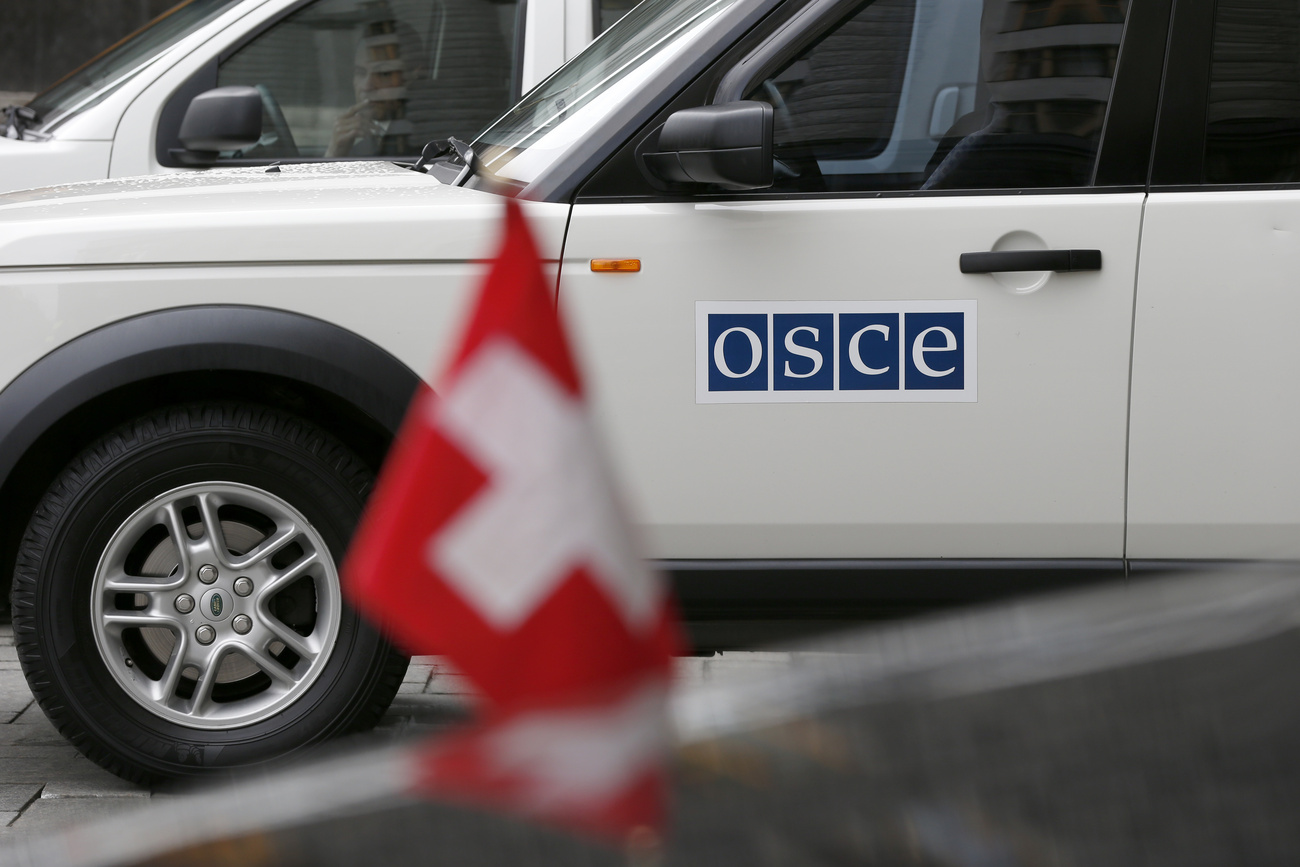
Business touts growth benefit of labour accord

Swiss business is urging voters to back the extension of a labour accord to the European Union's new member states, saying it will boost economic growth.
Business says the economic arguments in favour of the accord are compelling for Switzerland, which has seen lacklustre growth for more than a decade.
Key representatives of the Swiss business community, along with government and union bosses, say a yes vote to extending the free movement of people accord will give the domestic economy a much-needed boost.
Opponents say extension of the accord to the ten new – mostly eastern European – EU members will simply lead to the Swiss labour market being flooded by cheaper foreign labourers.
However, the opponents currently find themselves in a clear political minority, with even the Swiss Trade Union Federation broadly supporting the proposed change.
“Experience to date with free movement [between Switzerland and the original 15 EU members] shows that the implications for unemployment and immigration are minor and that the authorities are ready and able to impose effective controls and prevent abuses,” said the federation’s chief economist, Serge Gaillard.
“We do not expect that the nature of the problems would change significantly following an extension of the free movement of people to the new EU states.”
Growing pains
The government and the business representatives argue that extending the accord will improve Swiss access to the enlarged EU market, offer access to new growth markets and improve investment security in the new EU states.
In concrete terms, they predict that a yes vote will increase Switzerland’s gross domestic product (GDP) by between 0.2 per cent and 0.5 per cent per year over the period 2005-2010. This is equivalent to SFr1-2 billion ($0.8 –1.6 billion).
That comes on top of the 2.3 per cent increase in GDP that government economists estimate will be the longer-term result of the first set of bilateral agreements with the EU, including the original free movement accord with the (then) 15 EU members.
Forecasts suggest that roughly half of this EU “growth effect” should be attributed to the free movement of people, which not only opens up new markets but also makes it easier for Swiss nationals to work in EU countries.
Economists say extending the accord will benefit the Swiss economy because, while still one of the strongest in the world, it has been near the bottom of the world league table for several decades when it comes to annual growth rates.
Meanwhile, GDP growth rates in eastern European countries have averaged about four per cent per year over the period 1993-2004, roughly double the average for the other 15 EU states (2.2 per cent) and three times the Swiss average (1.3 per cent).
The government adds that a no vote would not only result in the loss of this growth potential, but would lead to lower foreign investment in Switzerland – and thus to higher unemployment.
Polish plumbers?
However, many opponents of the accord deny the reality – or at least the extent – of the potential growth “bonus”.
They say the main effect of a yes vote will be to increase immigration into Switzerland, force Swiss workers out of jobs and bring domestic wages down towards eastern European levels.
The argument is familiar from Germany, where many lower-paid workers believe they now risk losing their jobs to labourers from neighbouring states – the so-called “Polish plumber” effect.
The Swiss government has tried to allay such fears by insisting on temporary labour market restrictions, including quotas, which will remain in force until April 2011.
An additional clause allows further restrictions to be imposed until May 2014.
No wave of immigration
The EU itself estimates that roughly one per cent of the working population of the new member states – some 220,000 people – may migrate in the first five years following complete opening of EU labour markets.
It reckons about two-thirds of that number will go to Germany and a further ten per cent to Austria, with the tendency to migrate gradually declining as their home economies continue to grow.
The Swiss government adds that there are currently about 18,000 people from the new EU states living in Switzerland, so it does not anticipate “chain immigration”.
swissinfo, Chris Lewis
On September 25 the Swiss will decide on extending a labour accord with the EU to the ten new member states.
The agreement is part of a first series of bilateral treaties with the original 15 EU members in force since 2002.
About 18,000 people from the new EU states, including Poland, the Czech Republic, Hungary, Slovenia, Slovakia, the three Baltic republics, Cyprus and Malta are currently living in Switzerland.
Supporters say the extended labour accord will help spur annual growth in Switzerland by up to 0.5% by 2010.
Opponents of the deal argue it will lead to a wave of immigrants and cheap labourers – mainly from eastern Europe.
Parliament approved a series of temporary labour market restrictions, including quotas, to protect Swiss citizens.

In compliance with the JTI standards
More: SWI swissinfo.ch certified by the Journalism Trust Initiative




























You can find an overview of ongoing debates with our journalists here . Please join us!
If you want to start a conversation about a topic raised in this article or want to report factual errors, email us at english@swissinfo.ch.